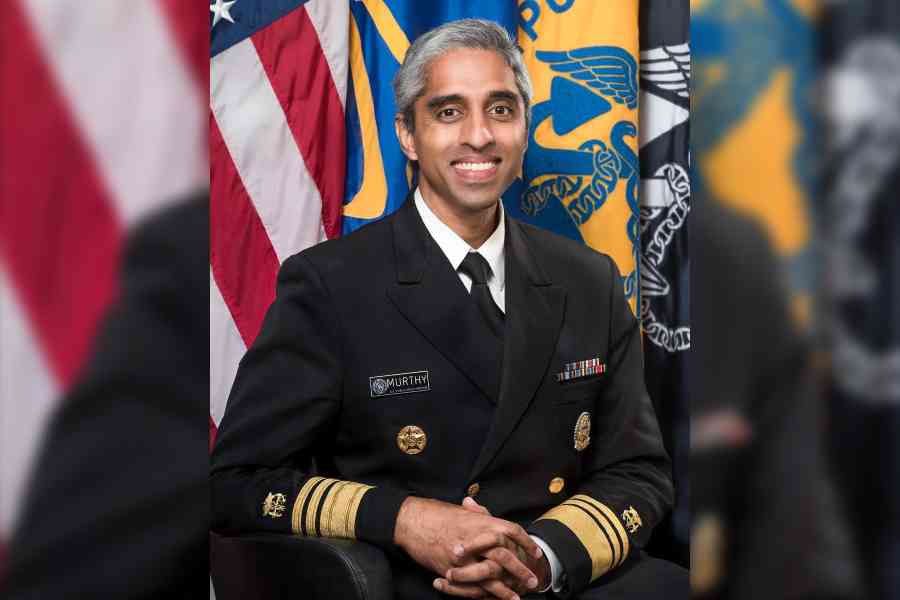US surgeon general Dr Vivek Murthy announced on Monday that he would push for a warning label on social media platforms advising parents that using the platforms might damage adolescents’ mental health.
Warning labels — like those that appear on tobacco and alcohol products — are one of the most powerful tools available to the nation’s top health official, but Murthy cannot unilaterally require them; the action requires approval by Congress. No such legislation has yet been introduced in either chamber.
A warning label would send a powerful message to parents “that social media has not been proved safe,” Murthy wrote in an essay published in The New York Times opinion section on Monday.
In his essay, he cast the effects of social media on children and teenagers as a public health risk on par with road fatalities or contaminated food.
“Why is it that we have failed to respond to the harms of social media when they are no less urgent or widespread than those posed by unsafe cars, planes or food?” Murthy wrote. “These harms are not a failure of willpower and parenting; they are the consequence of unleashing powerful technology without adequate safety measures, transparency or accountability.”
Murthy pointed to research that showed that teens who spent more than three hours a day on social media faced a higher risk of mental health problems, and that 46 per cent of adolescents said social media made them feel worse about their bodies.
US teens are spending an average of 4.8 hours per day on social media platforms, according to a Gallup survey of more than 1,500 adolescents.
In an interview last month, Murthy said he had repeatedly heard from young people who “can’t get off the platforms”, often finding that hours had passed when they had intended to just check their feeds.
“The platforms are designed to maximise how much time we all spend on them,” he said. “It’s one thing to do that to an adult, and another thing to do it to a child, whose impulse control is still developing, whose brain is at a sensitive phase of development.”
Past warning labels have had significant effects on behaviour. In 1965, after a landmark report from the surgeon general, Congress voted to require all cigarette packages distributed in the US to carry a warning that using the product “may be hazardous to your health”.
That was the beginning of a 50-year decline in smoking. When the warning labels appeared, around 42 per cent of US adults were daily cigarette smokers; by 2021, that portion had dropped to 11.5 per cent. Other experts say that, while the rise of social media has coincided with declines in well-being, there is no evidence that one caused the other.
New York Times News Service










